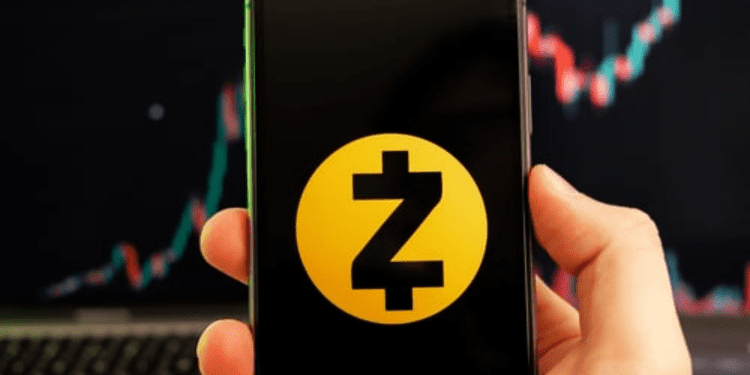Holders of Zcash (ZEC), the native cryptocurrency of privacy-focused blockchain Zcash, will be eligible for an airdrop of Namada’s future Namada staking token (NAM), according to a proposal made by the privacy-focused blockchain.
- Holders of ZEC are being offered an airdrop of the new Namada staking token (NAM), which is a layer 1 blockchain enabling multichain privacy.
- The first direct airdrop to shielded ZEC holders—users of zcash who prefer to keep their transaction information private—will take place with this.
Introduction
For many people in the cryptocurrency community, privacy is a significant worry. This issue can be solved with blockchain technology, and Namada is one of the platforms raising the bar for privacy. A layer one blockchain with a focus on multichain privacy is called Namada. To authenticate transactions on the blockchain without disclosing the sender, receiver, or transaction amount, ZK-proofs are used. An airdrop of Namada’s forthcoming staking token has been suggested to Zcash users who own the cryptocurrency that focuses on anonymity.
Namada’s Airdrop Proposal to Zcash Community
The intended audience for Namada’s airdrop plan, Zcash’s insulated ZEC holders, makes it distinctive. These users can keep their transaction information private (shielded) or transparent (public). The airdrop is a component of Namada’s retroactive public goods funding, which was created to give back to particular communities and initiatives that had a hand in developing the company’s technology.
After the launch of Namada in May 2023, the precise timing and mechanics of the airdrop will be determined. However, the foundation has set aside at least 20% of the estimated 1 billion NAM initial supply for retroactive public goods spending. This funding will support particular initiatives and groups, like Zcash, that have helped develop Namada’s technology.
Zcash Community’s Collaboration
Namada’s developer, The Anoma Foundation, has sent a proposal to the Zcash community asking for cooperation on research and development. The foundation recognizes that the technological contributions and socioeconomic initiatives of the Zcash community were essential to the development of Namada. Since both projects stand to gain from the collaboration, the foundation intends to work with the Zcash community.
Zcash and Namada use ZK-proofs to guarantee the security and secrecy of transactions. Consequently, a collaboration between the two initiatives is anticipated to improve privacy in the crypto sector. Additionally, the agreement will facilitate the partnership between the two projects, which will result in the creation of more private and secure blockchain technology.
ZK-proofs
Both Namada and Zcash use ZK-proofs to validate transactions without disclosing the sender, recipient, or transaction amount. ZK-proofs are a method for demonstrating the accuracy of information without revealing it. Users of ZEC can keep transaction information private (shielded) or open (transparent).
Namada’s Privacy Features
Multichain privacy is Namada’s main priority. The blockchain offers users who want to keep their transactions total personal anonymity. It validates transactions using ZK-proofs to ensure that the contents are kept secret. Namada is a workable option for those who need privacy without sacrificing transaction speed because it offers quick transaction processing times.
Conclusion
The airdrop proposal from Namada to Zcash’s protected ZEC holders marks a crucial turning point for the cryptocurrency sector. It not only gives the two projects a forum for research and cooperation, but it also helps finance particular initiatives and communities that have contributed to Namada’s technology. The collaboration between Namada and Zcash is anticipated to improve crypto privacy and pave the way for creating more private and secure blockchain technology. It will be interesting to watch how the collaboration develops and how it will later help the Namada and Zcash communities.














